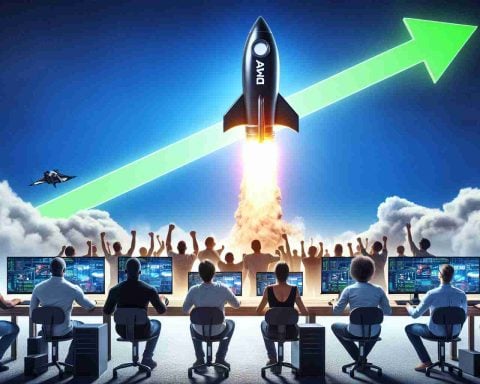In an unexpected leap from the realm of electric vehicles to the digital landscape, XPeng Inc. has announced its ambitious plan to establish the XPeng Bourse, a trading platform designed exclusively for video game assets. As technologies evolve and the gaming industry becomes increasingly woven into the fabric of daily life, XPeng aims to capitalize on the burgeoning interest in digital economies by offering gamers a sophisticated, streamlined marketplace.
The XPeng Bourse promises to revolutionize digital asset trading by providing a secure, reliable exchange for gamers to buy, sell, and trade virtual goods—from character skins to rare in-game items. By harnessing cutting-edge blockchain technology, the platform will ensure transparent, fast, and secure transactions.
What sets the XPeng Bourse apart is its integration of artificial intelligence to assess market trends and optimize trading opportunities. This feature not only facilitates smarter transactions but also helps users make informed decisions based on real-time data analytics. The platform is poised to attract not just individual gamers but also large-scale gaming corporations looking to engage more deeply with digital economies.
With this innovative venture, XPeng is positioning itself at the forefront of digital asset exchange, merging gaming and financial technologies in a way that has never been seen before. As the line between virtual and real-world value continues to blur, XPeng Bourse could be the catalyst that propels the gaming industry into a new era of economic interaction.
XPeng Bourse: A Game-Changer or a Risky Venture?
In a twist no one saw coming, XPeng Inc., renowned for pushing the boundaries in the electric vehicle space, has launched its new brainchild: the XPeng Bourse, a pioneering trading platform for video game assets. But what potential ripples can this create in our everyday lives, communities, and even countries?
As digital economies grow, the impact on local economies and employment could be profound. Communities with high numbers of gamers might see a shift toward digital entrepreneurship, with some individuals turning their hobby into a lucrative side business or even a primary income source. Imagine the rise of “digital item traders” much like antiquarians today.
However, this innovation introduces its own set of controversies and challenges. Questions about the regulation of such virtual marketplaces loom large. Could this platform inadvertently facilitate illicit activities, such as money laundering through digital assets? What protective measures are in place to prevent fraud and exploitation by hacker groups?
Furthermore, the integration of artificial intelligence in making trade decisions raises concerns about data privacy and the potential for AI biases affecting fair trade. How does XPeng ensure AI scrutiny doesn’t compromise user data?
On the flip side, one cannot ignore the advantages. The XPeng Bourse could dramatically enhance how gaming corporations interact with players, fostering a new era of community engagement and innovation. It can also democratize access to these virtual assets, making it easier and safer for players around the globe to participate.
Ultimately, while the XPeng Bourse offers numerous benefits, the gaming world must weigh these against potential risks. As we stand on the edge of this digital revolution, our journey with virtual economies may have only just begun.
For more information on the integration of AI and blockchain technology in various sectors, explore domains such as Forbes and Wired.























